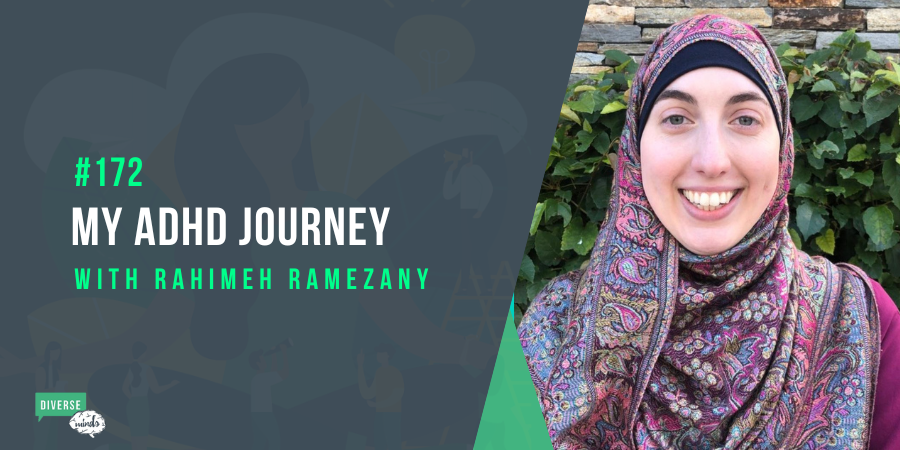Understanding The ADHD Brain: A Journey Inside Our ADHD Minds

Table of Contents
Neurological Differences in the ADHD Brain
The ADHD brain exhibits distinct neurological differences compared to neurotypical brains. These differences aren't simply about "bad behavior" but reflect variations in brain structure and function.
Brain Structure and Function
Neuroimaging studies using techniques like fMRI (functional magnetic resonance imaging) have revealed structural and functional differences in several key brain regions of individuals with ADHD.
- Prefrontal Cortex: This area, crucial for executive functions like planning, working memory, and impulse control, often shows reduced activity and volume in individuals with ADHD. This can explain difficulties with organization, time management, and task completion.
- Basal Ganglia: Involved in motor control and reward processing, the basal ganglia may exhibit altered activity, contributing to hyperactivity and impulsivity in some individuals with ADHD.
- Cerebellum: While traditionally associated with motor coordination, the cerebellum also plays a role in cognitive functions, and studies suggest potential structural and functional differences in individuals with ADHD, potentially impacting attention and coordination.
These findings highlight the complex interplay of brain regions contributing to the multifaceted nature of ADHD. Further research continues to refine our understanding of these intricate neurological processes.
Neurotransmitter Imbalances
Neurotransmitters, chemical messengers in the brain, play a critical role in ADHD. Imbalances in dopamine and norepinephrine are implicated in the symptoms experienced.
- Dopamine: This neurotransmitter is essential for motivation, reward processing, and attention. Dysregulation of dopamine can lead to difficulties with focus, reduced motivation, and impaired reward processing, making it challenging to stay on task and experience satisfaction from accomplishments.
- Norepinephrine: This neurotransmitter is crucial for alertness, arousal, and attention. Imbalances can result in difficulties with sustained attention, increased distractibility, and impulsivity.
Understanding these neurotransmitter imbalances is crucial for developing effective treatment strategies, often involving medication that aims to modulate these neurotransmitter systems.
Common Symptoms and Manifestations of the ADHD Brain
The ADHD brain manifests in various ways, with symptoms falling along a spectrum of severity. While the core symptoms involve inattention, hyperactivity, and impulsivity, their expression varies greatly among individuals.
Inattention
Inattention in ADHD isn't simply about daydreaming; it encompasses a range of challenges:
- Difficulty focusing on tasks: Sustained attention is often impaired, making it hard to complete tasks requiring concentration.
- Easily distracted: Minor stimuli can easily divert attention, leading to frequent interruptions and task switching.
- Trouble organizing: Difficulty with planning, prioritizing, and managing time contributes to disorganization and missed deadlines.
- Forgetfulness: Frequent forgetfulness of appointments, tasks, and even recent events is a common symptom.
These inattentive behaviors significantly impact academic, professional, and personal life.
Hyperactivity and Impulsivity
Hyperactivity and impulsivity in ADHD present in diverse ways:
- Fidgeting and restlessness: Constant movement, squirming, and inability to sit still are common manifestations.
- Excessive talking: Interrupting others, talking excessively, and blurting out thoughts without considering the context are frequently observed.
- Difficulty waiting: Impatience and difficulty waiting one's turn are characteristic of impulsivity.
- Impulsive actions: Acting without thinking, making hasty decisions, and engaging in risky behaviors are common challenges.
These symptoms often lead to social and interpersonal difficulties, affecting relationships and overall well-being.
Strategies for Understanding and Managing the ADHD Brain
Effective management of ADHD involves a multifaceted approach, combining medication, therapy, and lifestyle adjustments.
Medication
Medication plays a vital role for many individuals with ADHD.
- Stimulants: These medications, like methylphenidate and amphetamine, increase the levels of dopamine and norepinephrine in the brain, improving focus, attention, and impulse control.
- Non-stimulants: These medications, such as atomoxetine and guanfacine, work through different mechanisms to alleviate ADHD symptoms.
The choice of medication and dosage is highly individualized and determined through consultation with a healthcare professional.
Therapy and Behavioral Interventions
Therapy provides essential coping mechanisms and skills training.
- Cognitive Behavioral Therapy (CBT): CBT helps individuals identify and modify negative thought patterns and behaviors contributing to ADHD challenges.
- Behavioral Therapy: This approach focuses on learning and practicing specific behavioral strategies to improve attention, organization, and self-regulation.
- Executive Function Training: This aims to improve skills such as planning, organizing, and time management.
Therapy equips individuals with tools to manage their symptoms effectively.
Lifestyle Adjustments
Lifestyle changes play a supportive role in managing ADHD.
- Regular Exercise: Physical activity improves focus, reduces impulsivity, and enhances mood.
- Healthy Diet: A balanced diet supports brain function and overall well-being.
- Sufficient Sleep: Adequate sleep is crucial for cognitive function and emotional regulation.
- Stress Management Techniques: Mindfulness, yoga, and other stress-reduction techniques can help manage overwhelming feelings.
These lifestyle modifications contribute to overall well-being and enhance the effectiveness of other interventions.
Conclusion
Understanding the ADHD brain involves recognizing the distinct neurological differences, the diverse range of symptoms, and the availability of effective management strategies. The ADHD brain isn't simply a "lesser" brain; it's a brain that functions differently, requiring specific support and understanding. By addressing the neurological underpinnings and implementing tailored strategies, individuals with ADHD can thrive and lead fulfilling lives. Understanding the ADHD brain is a crucial step towards effective management and a fulfilling life. If you suspect you or a loved one might have ADHD, don't hesitate to seek a professional diagnosis and explore treatment options. Learn more about the ADHD brain and its potential by [link to relevant resource].

Featured Posts
-
 Analyzing The Lyrics And Impact Of Hit The Road Drax 2024 Protest
May 13, 2025
Analyzing The Lyrics And Impact Of Hit The Road Drax 2024 Protest
May 13, 2025 -
 Tzortz Mpalntok I Epiki Gymni Giorti Meta Ti Niki Tis Sefilnt Gioynaitent
May 13, 2025
Tzortz Mpalntok I Epiki Gymni Giorti Meta Ti Niki Tis Sefilnt Gioynaitent
May 13, 2025 -
 Edmans Homer Yamamotos Shutdown Performance Power Dodgers Past Cubs
May 13, 2025
Edmans Homer Yamamotos Shutdown Performance Power Dodgers Past Cubs
May 13, 2025 -
 Gimenez En Accion Ac Milan Vs Atalanta Guia Completa Del Partido
May 13, 2025
Gimenez En Accion Ac Milan Vs Atalanta Guia Completa Del Partido
May 13, 2025 -
 Byd A Evropa Problemy Na Zacatku Reseni V Hybridnich Vozech A Zkusenych Manazerech
May 13, 2025
Byd A Evropa Problemy Na Zacatku Reseni V Hybridnich Vozech A Zkusenych Manazerech
May 13, 2025
